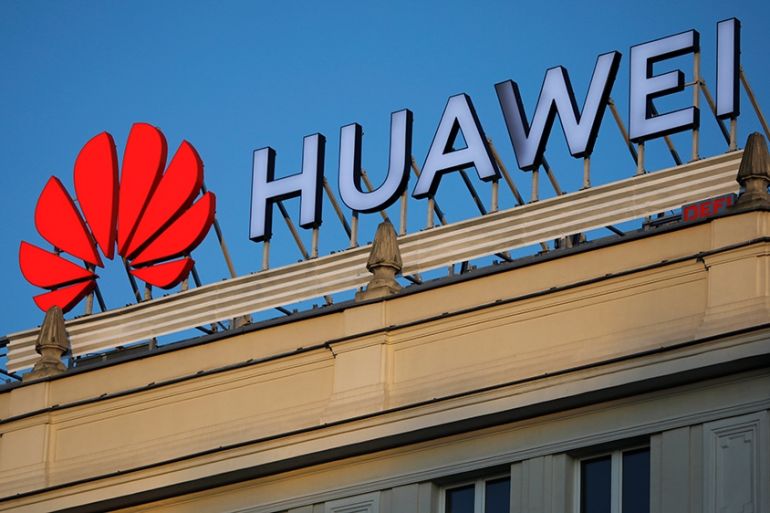Trump agrees to respond promptly to Huawei sales requests
US firms have been banned from selling components to Chinese telecoms giant without special permission.

United States President Donald Trump has agreed at a meeting with the heads of top technology companies to make “timely” decisions on requests by US firms to sell to blacklisted Chinese telecommunications giant Huawei Technologies Co Ltd , according to the White House.
But even as the CEOs of the companies “requested timely licensing decisions from the Department of Commerce,” a White House statement said the executives at Monday’s meeting expressed “strong support” for national security restrictions on US telecom equipment purchases and sales to Huawei.
Keep reading
list of 4 itemsTurkey halts trade with Israel, what’s the cost for both nations?
Can a new trade agreement boost pan-Africa trade?
Politics and convenience drive Mexico to be US’s top trading partner
Trump’s meeting was with the CEOs of Cisco, Intel Corp, Broadcom Inc, Qualcomm, Micron Technology Inc, Western Digital and Alphabet Inc, which owns Google.
The meeting comes amid lingering uncertainty over the future of US companies’ ties to Huawei, the world’s largest telecommunications equipment maker. It was placed on a US blacklist in May, with the government citing national security concerns.
US companies were banned from selling most US parts and components to Huawei without special licences. But Trump said last month that sales could resume as he sought to restart trade talks with Beijing.
Clarity on what the new policy toward Huawei will be has been slow to emerge.
On Monday, executives expressed displeasure at Commerce Department Secretary Wilbur Ross, who also attended the meeting, for not providing clear guidelines on policy toward sales to the Chinese company, according to a person briefed on the meeting. White House economic adviser Larry Kudlow and Treasury Secretary Steven Mnuchin were also at the meeting, the person said.
Ross has said licences would be issued where there is no threat to national security. Reuters reported last week that the US could approve licences for companies to restart new sales in a matter of weeks.
However, the Washington Post reported on Monday that Huawei secretly helped North Korea to build and maintain its commercial wireless network.
That may bolster China hawks in the US government who see Huawei as a real national security risk, over those who seek a more lenient policy to appease Beijing amid ongoing trade talks between the world’s two biggest economies.
The US accuses Huawei of violating Iran sanctions and stealing American intellectual property, accusations Huawei denies. Washington has also lobbied allied governments to keep Huawei out of their 5G networks, arguing that the company’s equipment could be used to spy for the Chinese government. The White House said unfair international trade practices and 5G technology were also discussed.
Huawei US research arm job cuts
Meanwhile, Huawei said it is slashing 600 jobs, or about 70 percent of the workforce, from its US research arm Futurewei Technologies.
Huawei said in a statement the job cuts, effective on July 22, were “due to the curtailment of business operations” caused by the US government’s actions.
The trade blacklist has made it illegal for Futurewei to transfer sensitive technologies to its parent.
Futurewei was set up in part to work closely with US universities and researchers. In 2018, its operating cost was $510m, Huawei said.
Futurewei has offices in Silicon Valley and the greater Seattle, Chicago and Dallas areas. It has filed more than 2,100 patents in areas including telecommunications, 5G cellular networks, and video and camera technologies, according to data from the United States Patent and Trademark Office.